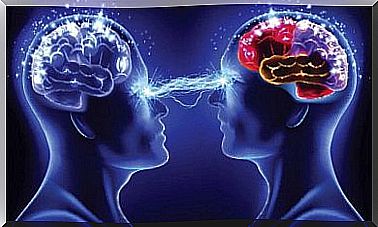The Three Keys To Leadership That We Should All Master

There are three keys to effective leadership that we should all master. It does not matter that we do not hold a position in a large company or that we do not have a certain number of employees under our responsibility. Leading is, above all, knowing how to inspire to get other people to feel committed to our vision, to our goals.
A leader can emerge at the least expected moment. It occurs when someone believes in their convictions and finds the way to influence others. Because a good leader is not defined only by his personality traits or by his ability to transmit authority ; in reality, we are dealing with someone who manages to master a series of very specific skills that we can all learn.
A Chinese proverb says that wild ducks follow the leader of their flock because of his flying and his ability to guide others, but never because of the force of his squawk. This phrase invites us to reflect on the classic conception that we usually have about leaders, where the concept of strength, domination and superiority has been clouding many of our work scenarios.
However, times have changed. Leaders with psychopathic traits are neither helpful nor advance an organization. Neither are those who think that leading is dominating and setting guidelines on what should and shouldn’t be done.
Currently, the effective leader is one who manages to create collaborative environments in which to redistribute responsibilities and also make people feel comfortable to develop their full potential.
Achieving it is not easy, but there are three key strategies to achieve it.

The three keys to leadership: times have changed
Fred Fiedler, one of the most notable researchers in the field of industrial and organizational psychology of the 20th century, points out that there are two types of leaders.
- The former are oriented solely towards the objectives, in achieving the goals that are set in the company itself.
- The second type of leader focuses exclusively on people, on the employees who surround him.
The latter’s model is based on training each person in a series of responsibilities, in ensuring that each man and each woman reaches their full human potential for the good of the group and, ultimately, of the organization.
Thus, one thing that has been seen is that the goal-centered leader has been the most common until very recently (and still is in many contexts). Now, in current times, needs have changed and it is essential to understand a number of ideas:
- The effective leader is one who trains other people to be “leaders” within their own responsibilities. The objective is to move from a vertical leadership to a horizontal one in which each member collaborates with the others and knows how to react to every need.
- Decision-making should not always fall on the leader. Responsibilities must be decentralized.
- In an increasingly complex and changing work environment, leaders are needed who know how to motivate and awaken skills such as innovation, problem solving.
Therefore, to achieve these goals it is vital to work on three very specific keys to leadership. They are as follows.

1. Emotional intelligence, the key to today’s effective leader
In books like
However, within the three keys to leadership this is undoubtedly the most important area. The reason? Being able to master the dimensions that make up emotional intelligence facilitates humane treatment and also allows us to get the best out of each one. The areas that should be worked on are the following:
- Emotional self-awareness (knowing and knowing how to handle one’s own emotions).
- Self-regulation (knowing how to control one’s emotions to improve social relationships).
- Self-motivation (setting goals and orienting yourself based on them to inspire others)
- Social skills.
- Empathy.
2. Decentralized decision making: knowing how to delegate
Another of the three keys to current leadership is knowing how to delegate responsibilities. Decentralized decision making is not intended to take the burden off the central leader, it is simply about training others to make use of their knowledge, potential and resources and thus be able to respond together to challenges.
The current good leader does not need followers, he does not need people who admire his abilities. What puts a company on the market are active and empowered people, employees who share the same goals as their leaders, and who feel adequately free to use their creativity and resources to achieve those same goals.

3. The three keys to leadership: authenticity
Authenticity – closely linked to honesty – is an exceptional value in the human being. Those who succeed in being genuine in their ideas, behavior, personality, and aspirations, succeed in inspiring others. Hence, the good leader must have this almost magical component, but at the same time, so rare.
After all, the genuine person is one who has good self-esteem, who acts without fear, who dares to take on challenges, who does not deceive or manipulate, who is authentic in thoughts, actions and words … In essence, the Today’s most effective leadership requires that we be able to awaken competencies that go beyond technical skills or more practical knowledge.
We need to empower ourselves in more human dimensions. In this way, we will be in a position to create environments where teams and individuals act with greater freedom, respect and originality in the face of such a changing and competitive environment.









